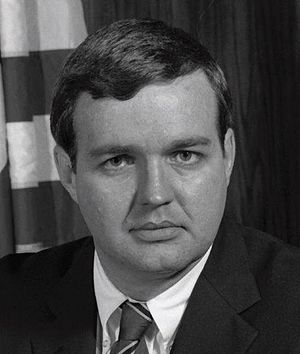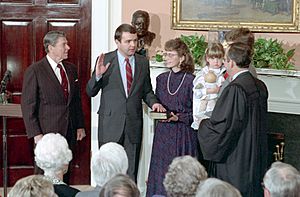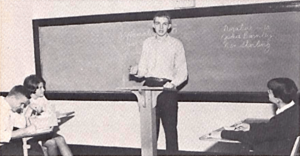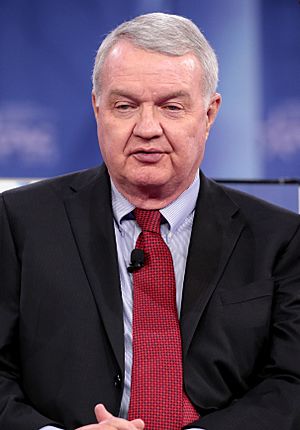James H. Burnley IV facts for kids
Quick facts for kids
James H. Burnley IV
|
|
|---|---|

Burnley as Transportation Secretary
|
|
| 9th United States Secretary of Transportation | |
| In office December 3, 1987 – January 20, 1989 |
|
| President | Ronald Reagan |
| Preceded by | Elizabeth Dole |
| Succeeded by | Samuel K. Skinner |
| 2nd United States Deputy Secretary of Transportation | |
| In office 1983 – December 3, 1987 |
|
| President | Ronald Reagan |
| Preceded by | Darrell Trent |
| Succeeded by | Mimi Weyforth Dawson |
| Personal details | |
| Born | July 30, 1948 High Point, North Carolina, U.S. |
| Political party | Republican |
| Spouse | Virginia Johnson |
| Children | 4 |
| Education | Yale University (BA) Harvard University (JD) |
James Horace Burnley IV (born July 30, 1948) is an American lawyer and politician. He was the United States Secretary of Transportation from 1987 to 1989. He served under President Ronald Reagan. Today, he works as a partner at a law firm in Washington, D.C.
Early Life and Education
James Burnley was born in High Point, North Carolina, on July 30, 1948. He went to High Point Central High School and was a star on the debate team. He was the only team member to earn the highest award, a double ruby.
After high school, he went to Yale University. He graduated with high honors in 1970 with a Bachelor of Arts degree. He then earned a law degree from Harvard University in 1973.
Career in Government

Burnley held several important jobs in the U.S. government. Before leading the Department of Transportation, he was the Deputy Secretary of Transportation. He also worked as the department's top lawyer, called the General Counsel.
From 1981 to 1983, he worked for the Department of Justice and was the director of the VISTA Program, a national service program.
Secretary of Transportation
In 1987, President Ronald Reagan appointed Burnley to be the Secretary of Transportation. This job put him in charge of the nation's transportation systems, like highways, airports, and railroads.
As Secretary, Burnley focused on improving safety. He created rules for testing transportation workers to make sure they were fit for duty. He also worked to get private companies more involved in building and running transportation services. He supported the Coast Guard by helping them get better equipment.
In 1988, Burnley led an investigation into Texas Air Corporation and its airlines, Continental and Eastern Airlines. He wanted to make sure the companies were financially stable and following all safety rules. The investigation found that the airlines were fit to operate. However, it also noted that disagreements between Eastern Airlines and its workers could create safety risks. Burnley appointed former official Bill Brock to help improve communication within the company.
Later Career
After leaving his government post, Burnley stayed involved in politics. He advised the presidential campaigns of Elizabeth Dole, Robert J. Dole, and John McCain on transportation issues. He also helped with the transportation transition team for President George W. Bush.
Today, Burnley is a partner at the law firm Venable LLP in Washington, D.C. He specializes in laws and rules related to transportation.
He is also involved with many transportation groups. He is the board chair for the Eno Center for Transportation. He has also served on boards for the Virginia Port Authority and the Transportation Center at Northwestern University.
 | Percy Lavon Julian |
 | Katherine Johnson |
 | George Washington Carver |
 | Annie Easley |



